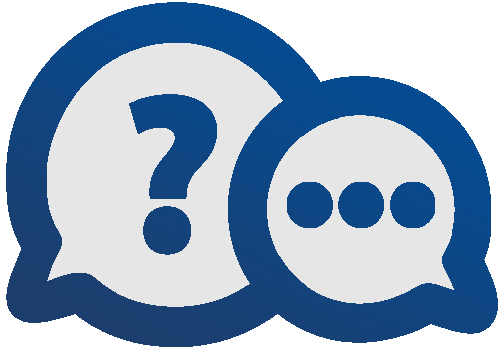
Q: Does my child have a Auditory Processing Disorder (APD)?
A: Auditory processing is a complex internal cognitive function that impacts all aspects of learning. Because there is generally no hearing loss or APD may not be accompanied by other neurological disorders, it can often go undetected. The signs of central auditory processing disorder are often subtle and may be difficult to tease out when other issues are also present. To complicate matters, a number of auditory processing skills may be impacted by APD, including auditory discrimination, auditory memory and auditory sequencing. Most professionals and therapists will start by considering whether or not a series of auditory skills may be undermined using an age-related checklist of potential deficits (see the age-related checklist included in this Common Ground accompanying article – add link).
Q: What is the difference between Developmental CAPD and Acquired CAPD?
A: Developmental APD relates to cognitive delays from an early age. Acquired APD relates to difficulties related to external factors, such as traumatic brain injury.
In Developmental APD, the signs and effects of the disorder change over time. One complication in recognizing APD in children is that symptoms often overlap with specific language impairment, ADD/ADHD, developmental dyslexia or delayed learning.
Q: Are there common symptoms that parents and teachers might lookout for?
A: Be on the lookout for the difficulties in the following three areas:
- Sound discrimination. If a child cannot pick sounds out, “frill” instead of “thrill” speaking, reading and spelling are at risk.
- Auditory memory. If the language sounds muddy, it does not always make sense and so it is hard to organize and commit to memory. This impacts math facts, following directions, etc.
- Language processing. This is where auditory processing disorder causes the most havoc. It impacts the ability to understand and think about language, spoken and written. This has academic and social consequences.
Other signs include:
- Difficulty listening with background noise
- Speech therapy or language delays when young
- Poor auditory attention, drifts off in class
- Difficulty with phonics and speech sound discrimination
- Difficulty with sounding out when reading
- Poor auditory memory
- Often misunderstands what is said, needs information to be repeated
- Poor expressive language skills
- Slow or delayed response to verbal requests and instructions
Parents can and should lookout for signs of APD, related to auditory development or otherwise, in an unscientific way. However, you should be careful to be age appropriate. For instance, auditory discrimination — being able to distinguish between phonemes such as /p/ and /b/ — does not fully develop until the age of 6 or 7.
Q: Should I pursue an assessment if I think my child has a CAPD?
A: If your child has 2-3 of the signs on the APD checklists, then you should consider next steps, which may include an assessment. The earlier the condition is identified, the more likely that intervention will have a positive effect.
Experts on CAPD suggest that a multidisciplinary team approach to assessment and diagnosis is needed. Teams should be comprised of speech language pathologists, child psychologists, educational specialists, audiologist and other professionals as needed. The audiologist’s role is to administer and interpret a range of behavioral and electrophysiologic measures of central auditory nervous system function, and identify the presence of abnormalities or dysfunction in the central auditory nervous system. At its conclusion the assessment should describe the nature and extent of the disorder for purposes of developing an individualized intervention program for the affected student.
Q: What are the treatment options for central auditory processing disorder?
A: Because APD is complex and only recently becoming more understood, the search for answers will often produce anecdotal reports of “miracle cures.” The effects of APD are unique to each individual so treatment options must be deficit-specific and highly individualized. The specificity of the assessment will help govern the development of the treatment plan.
Treatment of APD generally focuses on three primary areas: changing the learning or communication environment, recruiting higher-order skills to help compensate for the disorder, and remediation of the auditory deficit itself.
The primary purpose of environmental modifications is to improve access to auditorily presented information. Suggestions may include use of electronic devices that assist listening, teacher-oriented suggestions to improve delivery of information, and other methods of altering the learning environment so that the child with APD can focus his or her attention on the message.
Compensatory strategies usually consist of suggestions for assisting listeners in strengthening central resources (language, problem-solving, memory, attention, other cognitive skills) so that they can be used to help overcome the auditory disorder. In addition, many compensatory strategy approaches teach children with APD to take responsibility for their own listening success or failure and to be an active participant in daily listening activities through a variety of active listening and problem-solving techniques.
Direct treatment of APD seeks to remediate the disorder, itself. There exist a wide variety of treatment activities to address specific auditory deficits. Some may be computer-assisted, others may include one-on-one training with a therapist.
It is important to emphasize that there is no single APD therapy that will be effective for all children, and any therapy’s effectiveness cannot be predicted in advance. Some children with APD may completely overcome their difficulties or seem to “grow out of” their disorders. Others may experience residual deficits and effects into their adult years. With appropriate intervention most if not all children with APD will learn to become active participants in their own listening, learning, and developing communication success.


